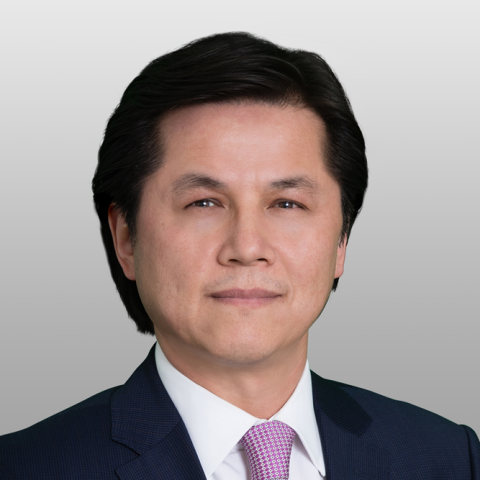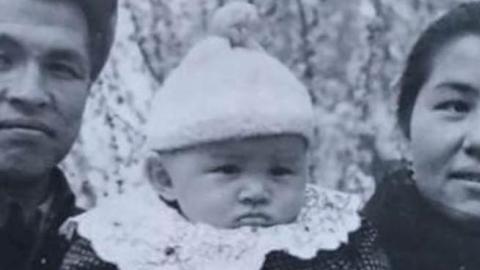I was born in a Chinese reeducation camp, where my mother was detained in the Xinjiang Uyghur Autonomous Region, which many Uyghurs call East Turkistan. For most of my life, I tried to forget the horrific experiences my mother and I had during my early childhood. But it seems the past is repeating itself -- and with a vengeance.
When I was born, the Uyghur region -- like the rest of China -- was in the throes of Mao Zedong's Cultural Revolution. It was a period of totalitarian zeal: Almost anyone suspected of not being adequately communist was beaten, jailed or killed. Religious and ethnic minorities were particular targets.
Mao's zealots, called the Red Guards, came to the traditional Uyghur homeland to enforce the brutal policies of the tyrannical regime. The Red Guards burned religious texts, destroyed mosques, banned Uyghur-language books and ordered millions of Uyghurs -- including my mother -- into reeducation camps to be indoctrinated in Maoist doctrines and to be "reformed" through hard labor.
While arbitrary reeducation on a large scale experienced a lull following the end of the Cultural Revolution, forced labor programs have remained a human rights concern in China in spite of the economic reforms of the following decades.
Now, some half a century later, China is targeting the Uyghur population with a new fervor. According to the US Department of Defense, China has detained possibly as many as 3 million Uyghurs in detention camps. Meanwhile, based on satellite imagery, CNN reports China has been destroying traditional Uyghur cemeteries. And, according to the accounts of several Uyghur women, it is incorporating an extensive forced sterilization program.
Having experienced the reality of living under this regime, and now watching with horror as these atrocities are visited on my Uyghur brothers and sisters, it's difficult for me to comprehend how any Western actor could push for greater dialogue or engagement with such a regime.
How cheap are the lives of my people to the international community if it ignores reports of the Chinese government's attempt to commit genocide against the Uyghurs? Democracies and nongovernmental organizations alike must do significantly more to support the Uyghur struggle -- even if it comes with an inevitable backlash from the Chinese government.
Since leaving China in 1995 to seek political freedom and pursue graduate education, I have made it my mission to speak out against the horrors perpetrated against the Uyghurs, despite the serious consequences I have had to pay. I have not seen my mother or father for more than 17 years. The Chinese authorities have prevented my ailing and aging parents from leaving to reunite with their American children and grandchildren. Though my parents have never been given a clear reason for this, I strongly believe it is because of my criticism of the Chinese government.
As a lawyer, human rights advocate, and now vice chair for the US Commission on International Religious Freedom (USCIRF), I have advocated for human rights and religious freedom in China and around the world for many years. And, in these capacities, I have seen real progress in raising awareness of the atrocities perpetrated in the Uyghur region. But to have any meaningful impact, the world's leading democracies must pursue a bolder strategy aimed squarely at hitting China where it hurts -- weaponizing import bans and strategic investments.
Appallingly, many of the products enjoyed by Western countries are made by interned Uyghurs in China. According to several reports, Uyghur forced labor contributes significantly to the world economy -- particularly solar-panel manufacturing and cotton-growing industries. In a liberal international order, there can be no room for forced labor.
The US Senate has taken serious steps forward on this issue by passing the Uyghur Forced Labor Prevention Act, which establishes broad import bans on products from the Uyghur region. The US House of Representatives, which passed an earlier version of the bill in 2020, must now move quickly to pass this bill, so that President Joe Biden can sign it into law.
Read in CNN















